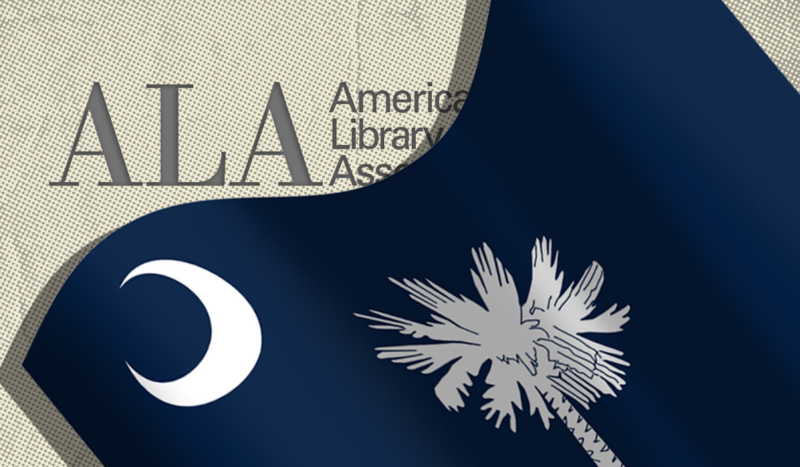
CV NEWS FEED // The South Carolina State Library has announced that it is not renewing its longstanding membership with the American Library Association (ALA), slamming the group’s controversial embrace of far-left politics as “unprofessional.”
“It is after much contemplation and with great disappointment that I write this letter to inform you that the South Carolina State Library will not be renewing our institutional membership with the [ALA],” wrote Agency Director Leesa Aiken in a letter to ALA Executive Director Tracie Hall last month:
ALA’s hyper-focus on groups of people at the exclusion of others has been problematic for libraries and has hindered their ability to engage with all members of their communities and government representatives.
ALA has become a distractor from the core mission of serving all people and has failed to develop an understanding of differences in geographic areas. Guidance which has been provided by ALA concerning book bans, and handling difficult situations locally have quite frankly been tone-deaf and show a lack of understanding of what is happening in the field.
Aiken went on to argue ALA’s claim that it is “non-partisan” and “develops, promotes, and improves library and information for all” does “not ring true in the current climate.”
“ALA’s actions appear to be activism for certain groups of people and not advocacy for libraries and all of the people they serve,” she wrote:
The advice and action of some individuals associated with ALA for librarians to sneak materials into libraries and book their meeting rooms to avoid usage of certain groups of people is not only unprofessional, it goes against the basic principle that libraries are for everyone. Better advice to librarians in the field would be related to creating a balanced collection, developing policies that clearly outline who can reserve meeting spaces at the library, and dealing with opposing viewpoints.
Libraries should be fully operating in the open to provide services to all people without a need for the above-mentioned antics.
State Freedom Caucus Network Communications Director Greg Price celebrated the news on social media. “The dominoes are falling for the ALA,” he wrote. “Turns out that electing a Marxist president and openly admitting to indoctrinating kids is a bad idea.”
Earlier this month, CatholicVote reported that ALA President Emily Drabinski was caught attending the far-left Socialism 2023 conference, where she “expressed her desire to make libraries and schools fronts for ‘socialist organizing.’”
Drabinski, who describes herself as a “Marxist lesbian,” was elected president of the ALA in April of 2022. The ALA is a nearly 150-year-old library organization with a membership of around 50,000. Her unapologetic advocacy for far-left politics has caused several states to break ties with the organization.
Missouri this July became the first state to drop the ALA. Republican Secretary of State Jay Ashcroft wrote in a letter to Hall that his office could not “continue to support an organization that does not protect the first amendment rights of Missourians.”
Ashcroft called the ALA’s support of stopping faith-based groups from holding story hours in public libraries a “blatantly political stance.” At the same time, the ALA celebrated so-called “drag queen story hours” targeted toward children.
Shortly after Missouri’s exit, Montana followed, with the state’s Library Commission announcing that their “oath of office and resulting duty to the Constitution forbids association with an organization led by a Marxist.”
In early August, a coalition of 13 conservative groups called on more states to join Missouri and Montana, describing the current ALA as “an organization that is undermining our country’s Constitutional rights and attacking its moral foundation.”
Later that month, Texas broke ties with the ALA. State Rep. Brian Harrison, R-TX, applauded the decision saying that the Lone Star state “should be leading the fight against dangerous Marxist ideology – not subsidizing it with my constituents’ hard earned tax dollars”
In April, the ALA released a list of the 13 “most challenged” books. In their release, they expressed support for multiple sexually explicit works marketed toward minors. The organization’s then-outgoing president referred to the authors of these books as “brave.”
Among the books on the list was “Gender Queer,” a deeply controversial pornographic graphic novel that contains an illustrated scene depicting the minor protagonist’s sexual fantasy of being molested by an adult.

